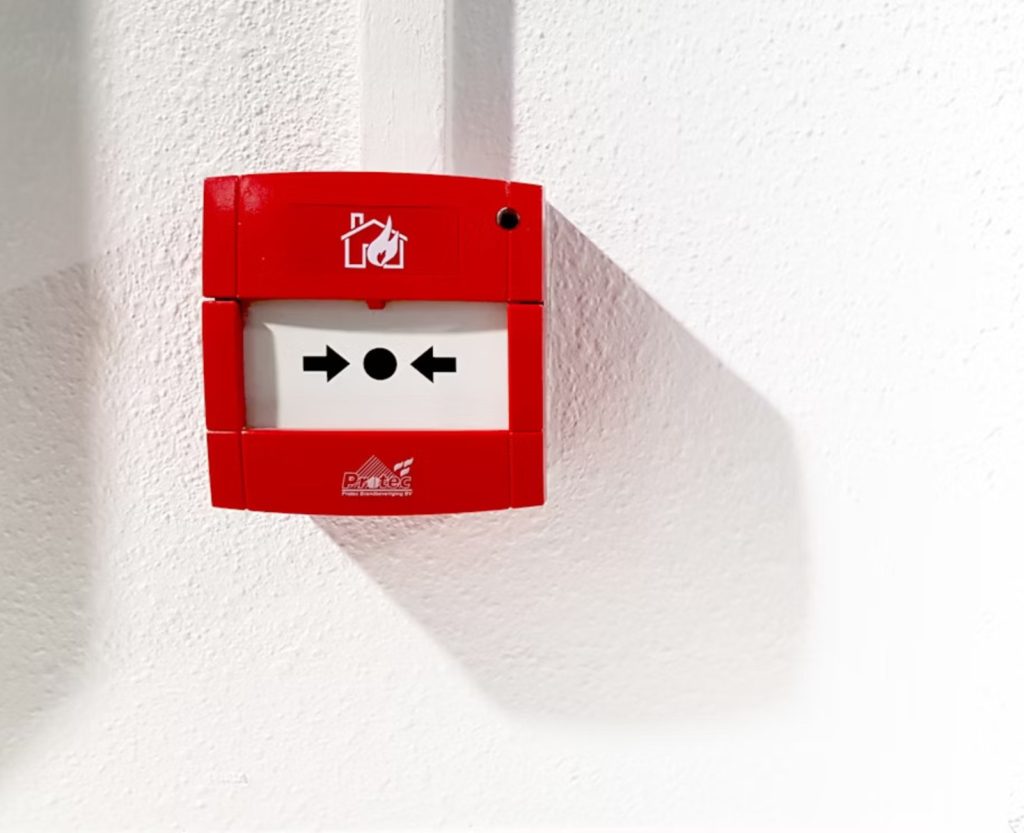In another look, BFSI (Banking, Finance, Insurance) is the leading industry that utilizes smart contracts. However, the use of smart contracts continues beyond that. It can also act as an automation machine, attracting healthcare businesses, retailers, manufacturers, logistic companies, and many more to join the race.
Promised to deliver security, transparency, high performance, and tamper-proof, here are the examples and use cases of smart contracts for your industry (and when you shouldn’t use them).
This article is a part of our A-to-Z guide on Smart Contracts & Its Future. If you are still unsure of its capabilities, here are what to catch on and make up your mind:
- What are Smart Contracts: Types, Good & Bad, Use Cases
- Cost & How to Create Smart Contract on Ethereum, Binance & Polygon
Finance: DeFi apps and cross-border transactions
Fintech and Banking businesses can apply smart contracts to automate complex documentation and verification. Therefore, they can remove lengthy paperwork, increase accuracy during disbursement, and simplify repayment tracking. Thanks to them, things like identity verifications and operating cross-border and peer transactions are much more manageable, fast, and safe.

The upswing in smart contract use cases promotes the application of Decentralized Finance (DeFi). They support DeFi protocols, enabling token trading on decentralized exchanges and direct P2P lending without censorship from centralized authorities. Moreover, they automate the liquidity suppliers’ reward system to facilitate yield farming. Freelancers and remote workers can receive their international payments within minutes from wherever they are.
Real-world example of smart contracts:
Realizing the legal, financial, and cultural risks of cross-border trading and transaction, we.trade decided to build a blockchain solution, empowered by IBM Blockchain and smart contracts, to reduce friction and encourage more businesses to go global.
The smart contracts remove any counterparty risk by automatically executing transactions after the requirements written in the “contract” are fulfilled. Both parties on two ends will receive a trigger for every action made to the transaction.
Finance: DeFi apps and cross-border transactions
In many aspects, the use of smart contracts aids the insurance sector in streamlining the claim processing procedure.
First, they expedite error checks and calculate payout amounts using a set of standards for insurance that one person or business could have. This increases the accuracy, especially when you spend millions of dollars annually on processing claims; you don’t want it to fall into insurance fraud. This smart contract use case will also reduce processing time and costs.

In the future, smart contracts can work with IoT-enabled vehicles to enable pay-as-you-go insurance plans and instantly activate claims after accidents. For instance, smart contracts process driver’s licenses, driving records, and accident reports immediately to facilitate swift payouts, benefiting both parties.
Real-life example of smart contract:
French insurance company AXA once introduced the concept of Fizzy, an Ethereum-based flight-delay insurance app that stores and processes payouts via smart contracts.
Fizzy streamlined the compensation processes between providers and claimants by automatically triggering payout based on predetermined conditions instead of waiting for claims of loss. The app mitigated potential conflicts between insurer and clients.
NFTs and gaming
While smart contracts are used as an automation tool for many industries, they also serve as a “legal representative” – replacing the traditional law system in the vast blockchain world, mostly authorizing the trading of NFT and gaming.
Gaming is a robust industry with over 3 billion active global players and a market value of $300 billion. Promising as it is, the gaming industry has two problems:
- Players don’t own their in-game assets, meaning they will lose the investment once they stop playing or the game stops being distributed.
- Typical players can’t obtain tangible assets from playing games.
To fix this problem, non-fungible tokens (NFTs) on smart contracts are introduced. NFTs give players freedom to own their in-game assets and move characters across games. Players can also sell NFTs to generate income. Smart contracts are the backstage machine that enables all this.
Real-life stories:
Cyber8, a veteran game studio, worked with Synodus to build a chill-and-earned NFT sport game. Integrating smart contracts, the metaverse can easily deposit/ withdrawal token efficiently, power the purchase and trading of NFT, run the Play-2-earn model and protect the platform’s integrity with its verifications.
Healthcare: Smart patient and medication management
Smart contracts have use cases in healthcare. The healthcare industry adopts smart contracts into computer systems to securely encrypt and maintain its health record database. They are also guards, allowing only certain individuals to gain access to the system.

From there, you can securely transfer highly sensitive data across facilities, including sensitive medical conditions, test results, and new drug formulas. Plus, smart contracts secure said data if information needs to be divulged to any third party for any reason.
By automating complex medical billing processes, smart contracts reduce the risk of error and financial fraud. They track medications from manufacturers to patients and protect their authenticity and quality.
Real-life use case of smart contract:
Encrypgen transfer patients’ DNA data to researchers for clinical trial purposes via smart contracts. Smart contracts and blockchain enable DNA simulations, helping researchers discover treatments and cures for illnesses. They also facilitate data access, payments, and the recording of parties who access certain DNA data by combining DNA data and payment info on the blockchain.
Property management
Smart contract use cases in property management include:
- Storing property ownership records: Smart contracts are a great alternative to existing systems as they are more cost-effective and faster. You can use it to record all property documents, namely buildings, land, phones, other personal assets, etc.
- Optimizing services costs: Smart contracts remove redundant and overpriced services provided by lawyers and bousing brokers. In other words, sellers fully control transactions by themselves without any middleman.
Companies are also using smart contracts in Intellectual Property (IP) management by setting up permanent records of IP rights on blockchain technology.
The use of smart contracts enables programmable, automated licensing with autonomous enforcement of royalty payments, terms of use, and duration. Not only that, but smart contracts also facilitate direct P2P transactions that rely on no third party, giving creators more royalty earnings on the IP ecosystem.
Real estate: Mortgages and real-estate tokenization
The use of smart contracts is present in real estate and mortgages.
Smart contracts boost the visibility of terms and conditions among lenders and loan seekers. They also effectively remove the need for an intermediary lawyer to validate a mortgage.
Smart contracts fuse blockchain and real estate transactions to tokenize real estate assets. This means more fractional ownership of assets and fewer entry barriers for investment. The blockchain-real-estate fusion also transforms the documentation and transaction processes.

Another use of smart contracts is cost reduction. Smart contracts remove the need for intermediaries or other advisory services, reducing or even eliminating these costs. The record-keeping process takes place immediately on smart contracts, saving time and money for both seller and buyer. Sometimes, smart contracts streamline rental agreements, warranties, insurance, and complex or mortgages agreements.
Real-life stories:
A Vietnamese real estate powerhouse worked with us to build a real estate tokenization platform. To enable automation, increase accuracy and ensure reliability, the platform relies on smart contracts. From there, investors can flexibly sell, trade and buy tokenized assets in a secure manner. Read the story here!
Logistics & supply chain: Tracking and inventory application
In logistics and supply chain management, smart contracts enable managers to keep track of stock levels in real time with full visibility and transparency. Managers can also trace a missing product back to the time and date of the disappearance, eliminating the risk of in-house theft.

Applying smart contracts can mitigate the dependence on verification, as well as the risks of fraud and theft. The efficiency of the supply chain can be greatly improved, for example, by using smart contracts to improve inventory and shipment tracking.
Smart contracts use cases in real-life:
TradeLens, an IBM and Maersk joint venture, employs smart contracts to facilitate collaboration on international trade. Once implemented, smart contracts accelerate document processing time and require less trust between parties.
Another use case of smart contracts is to help store shipping information coordinatingly and communicatively between parties in a single source. Instead of hundreds of documents and efficiencies in communication, parties on both ends of the trade can communicate easily about the status of the cargo ship.
For logistic business, you can also set up smart contracts with your client. The shipping starts once the payment is received, and smart contracts automate everything.
Retail: Vendor management application
In retail and eCommerce, smart contracts revolutionize retail transactions to be cheaper, faster, and more transparent. Retailers can automate transactions with vendors and manufacturers through self-executing contracts with coded rules. Smart contracts also set up conditions to send refunds or exchanges when a dispute is triggered.
More than that, smart contacts are a good partner in tracking customer behavior and assigning loyal points or discounts to customers. Companies using smart contracts eventually retain and raise customer engagement and satisfaction.
Real-life stories:
Home Depot adopted smart contracts technology to resolve possible issues with vendors immediately. This boosts real-time communication and visibility in the supply chain to build stronger supplier-buyer relationships.
Entertaiment & media platform
You might think there is no link between smart contracts and entertainment and media, but there is. In fact, there are many things that artists and labels can do using smart contracts, not just safeguarding their IPRs. Songs released on blockchain will receive a unique number that allows the artist to have control over them without being digitally copied or stolen.
For many artists, smart contracts assist them in controlling and monitoring royalty payments on time. All related parties (publishers, labelers, artists, etc.) get paid and receive royalties on time without delays, thanks to smart contracts.
Artists releasing their music on blockchain don’t need to hire a middle manager or a middle provider. Their music goes straight to their listeners. Fans can pay for their favorite songs in cryptocurrencies and connect with other fans.
Real-life stories:
Choon is a smart-contract-integrated streaming site that distributes music through a decentralized approach. Users together create a playlist of their own liking or let the app do all the magic. Smart contracts in Choon are claimed to increase the income one artist receives by 80%.
And yes, you can also use smart contract for HRM
Smart contracts in HRM help streamline payroll and administration processes. Accountants can distribute salaries to staff in a timely manner based on work hours, performance metrics, and company policies. Administrators can easily enroll employees, manage claims, and track their eligibility with smart contracts.
Smart contracts can also make recruitment processes like job offers and acceptance more transparent and seamless. Corporates can use smart contracts to verify and record certifications and training completion. These records are reliable and tamper-proof.
Voting
Smart contracts are solutions to secure, transparent, and reliable voting. It might take time to overhaul the government voting system, but one can expect a more simplified scenario. A vote is cast on-chain using a private key; a person’s ID is discreetly verified from multiple approved sources via DECO; and an immutable, universally verified record is published when a confirmation is released on-chain.

Examples of smart contracts:
Despite being a promising technology for future voting, there aren’t many public use cases of this. Yet, to prove the efficiency of this concept, here are an example of how voting will work in smart contracts and blockchain (as well as how to build one).
Identity management
Existing technologies are not as effective in preventing crimes as they should be. They also restrict the owners’ control over their data and output information.
Digital Identifier with smart contracts gives owners full authority over their data. They can share content of their liking whenever and wherever they desire. Applying smart contracts can increase efficiency in identity safety, KYC verification, overall security, and data management.
Birth of DAO – a new corporate structure
Since 2017, when blockchain technology was incorporated into businesses, many decentralized autonomous organizations (DAOs) emerged. DAOs use smart contracts to encode corporate structures, allowing complex incentive structures to be automatically enforced within a corporate framework. By utilizing incentive structures that do not require formal employment contracts, DAOs can help organizations save on administrative costs such as office space, hiring, and payroll.
Smart contract and AI
AI-powered smart contracts are predicted to be coming soon and are on their way to being incorporated into various industries. They can be created by combining AI’s data-intensive processing with blockchain’s decentralized security. AI can use the autonomous code execution of smart contracts to build a secure environment for machine learning. In return, smart contracts can utilize AI technology’s advanced computational capabilities and adaptive systems.
AI-enabled smart contracts are expected to be complex enough to solve sophisticated tasks across various industries. With AI in hand, creating more responsive, enterprise-grade smart contracts and dApps is feasible, potentially expanding the technology’s capabilities.
When smart contract is not the right choice
Despite offering transparency, automation and security, smart contracts are still evolving, hence having certain challenges in deploying and operating them.
You shouldn’t use smart contracts if:
- The agreement contains heavy legal and regulatory material. Many regions haven’t had any law to support the use of smart contracts in court. While some approve it, you should have a legal expert to consult before development. It’s much better to avoid and prevent any future conflicts. For this, you can also consider hybrid approach, combining traditional contracts with smart ones.
- If there are tools to automate certain parts of execution, there’s no need to invest in a smart contract.
- You lack technical resources and investment for one. Building smart contracts is a hassle, please make sure you have the right talents for them.
- The truth is smart contracts can fasten lots of process when the execution of agreements is in place. But the process to assemble a smart contract is not exactly faster or slower than the traditional approach. You still need to build a good code and everything else. You can consider an audit service before deployment.
- When the smart contracts are good for you, but it’s a pain for other parties.
So, I guess smart contract isn’t for me? Well, to know if you can receive any benefits from it or not, you should consult with legal and blockchain experts.
And Synodus is best at both. We have teams of blockchain developers and legal executives. We have built smart contracts for many businesses in various industries, from DeFi to real estate. Let our well-versed team handle your smart contracts development from scratch or only audit, depending on your need.
Wrapping up
Smart contracts are the rising solution of decentralization and security. From these smart contracts use cases, it’s easy to see how the technology has been integrated into many industries and is soon to expand further. However, developers and businesses should be cautious about when and not to use smart contracts for the sake of the company.
How useful was this post?
Click on a star to rate it!
Average rating / 5. Vote count:
No votes so far! Be the first to rate this post.




